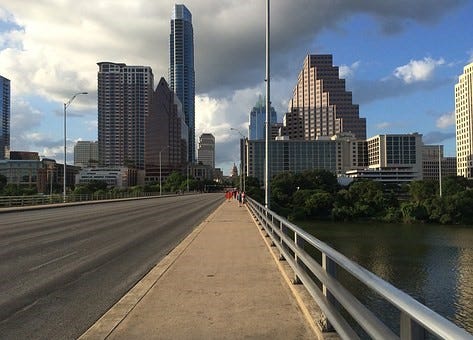By the Democratic Staff of the Joint Economic Committee
President Trump’s plan to rely on public-private partnerships (P3) to meet much of the nation’s infrastructure needs took a hit last week when the Texas House rejected legislation that would have allowed P3s to participate in 18 highway projects in the state. Opposition to new tolls reportedly led to the bill’s defeat. As it stands, the nation’s second largest state, with a range of infrastructure needs, would be unable to participate in P3 deals that are expected to be at the center of any Trump Administration infrastructure plan.
The Trump Administration has signaled that it will seek to leverage $200 billion in federal funds to generate $1 trillion in infrastructure investment. Despite big promises, there is still no plan. OMB Director Mulvaney has said that a plan will not be ready until the fall.

In P3 arrangements, private investors take on the risk of design, constructing, and operating a project or projects in exchange for revenues that comes from tolls or other user fees. Relying on private investors to address the nation’s growing infrastructure needs means that many important projects that do not deliver returns attractive to investors simply would not happen. Rural areas in particular, with small populations to support the costs of infrastructure projects, would be overlooked. Previous analysis by JEC Democrats shows that financing infrastructure through tax credits to private investors also costs more than traditional infrastructure financing.
As just seen in Texas, opposition to new tolls can also derail P3 plans. Many states, including New Mexico, Arizona, and Wyoming have no tolls roads. Adding tolls may require federal authorization and may also encounter strong consumer backlash. In total, 13 states do not have legislation on the books that authorizes public-private partnership arrangements, another obstacle for the plan that is expected to rely principally on private money to address public needs.
Democrats are ready right now to fix the nation’s broken infrastructure. Senate Democrats have proposed “A Blueprint to Rebuild America’s Infrastructure” that would invest $1 trillion to repair, rebuild, and modernize the nation’s infrastructure while also creating an estimated 15 million jobs. The plan would address the nation’s infrastructure by rebuilding and maintaining roads, bridges, ports, water systems, rail transit, and airports. It would also make investments in 21st century clean energy, expand access to broadband internet, modernize public schools and VA hospitals, and invest in public lands and tribal infrastructure. The benefits would be broadly shared across urban and rural areas.